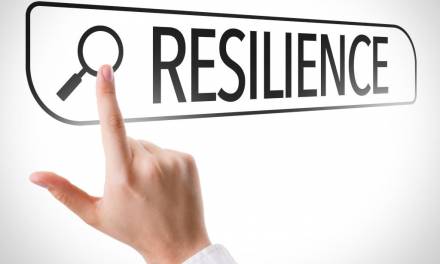PE not only helps to encourage pupils to lead healthy lifestyles and enjoy participating in sports, it can also help to develop key life skills.
Such skills include confidence, teamwork, and working towards objectives and goals.
Another major life skill that PE helps to build is resilience. With increasing concerns around mental health and more awareness around the importance of mental wellbeing, building resilience through PE takes on even more significance.
What is resilience?
As defined by Psychology Today, resilience is described as:
…that ineffable quality that allows some people to be knocked down by life and come back stronger than ever. Rather than letting failure overcome them and drain their resolve, they find a way to rise from the ashes.
They also go on to list a number of factors that make a person resilient including having a positive attitude, being optimistic and being able to regulate their emotions. Resilience is about taking a setback (such as a defeat) and being able to channel the disappointment of the experience to do better next time.
In sport, defeat is something that every participant will experience at some point, whether that is in a PE class or in a World Cup final. When France won the football World Cup in the summer, their team was full of players that had experienced setbacks in their career.
Good examples of resilience in sport
Paul Pogba was one of the stars of the World Cup tournament but he had his fair share of disappointments, such as his struggle to break into the Manchester United team as a youngster.
Instead of dwelling on that experience, he went on to establish himself as a top talent at Juventus before earning what was then a world record transfer back to United.
Without resilience, Pogba may have ended up drifting out of the game rather than becoming a World Cup winner.
Invictus Games
There are so many amazing examples of athletes that have suffered much worse setbacks than being left out of a team.
The Invictus Games is a fantastic event that celebrates the most exceptional levels of resilience. It is an event where wounded, injured and sick servicemen and women compete. Many of the athletes taking part have suffered horrific injuries, such as amputation of limbs, but they refuse to let that hold them back.
The mental attitude and strength of those athletes is so admirable and inspiring for others. One of the competitors from the USA team talked about how important the Invictus Games had been in their life:
Up until my awareness of the Invictus Games, all I had been doing was living in memories. In my mind my life has been over and I was just waiting to be done because I’m not capable of doing or living like I used to. I‘m starting to think however, that my game has just begun.
That really encapsulates the power of resilience and it shows that if people can recover from the hardest setbacks in life like this then anything is possible with a positive mindset.
Every time an upcoming tennis player loses a match or a runner suffers a hamstring injury, it is important for them to focus on being resilient.
The power of optimism and positive thinking should not be underestimated and it is key in being successful and happy in both sport and life overall.










